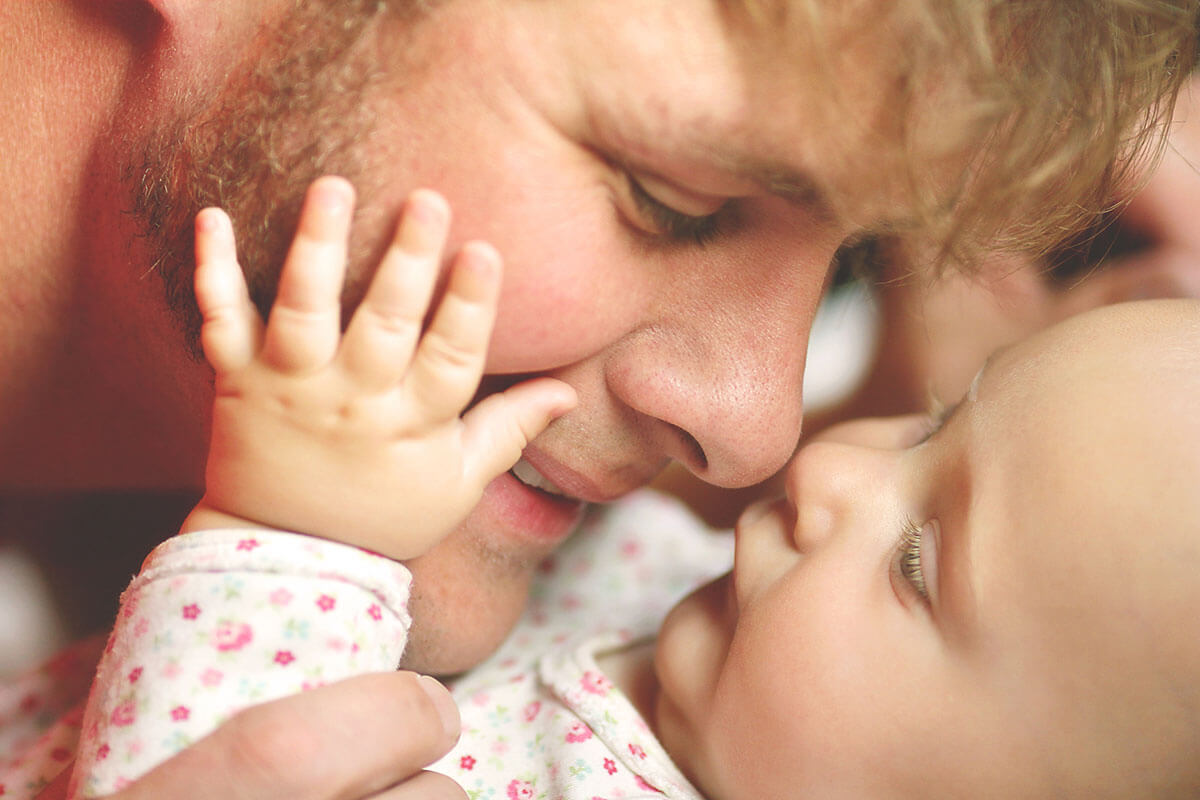In the first three months, all kinds of social interactions occur in which adult and baby take turns looking at each other, touching each other, laughing and making sounds. In month 3 to month 6 babies learn to distinguish between different emotions and learn to respond to them. Social expectations develop, which becomes well visible during contact games, for example. Babies at this age show a clear reaction to their own name by, for example, interrupting their play and turning in the direction of the sound.
Symbiotic phase
A baby is in the symbiotic phase during the first 3 months. In this phase, a baby is fused with his parents and often especially with the mother. The baby especially wants to cuddle with its mother and father. It has a strong need for that. The baby wants to feel warmth and security all the time. Scientists say that a child forms a feeling unit with the mother and with the father. The baby wants to be satisfied sensually and, for example, eat when it wants to eat, pee and defecate when it wants to pee and defecate. This stage is very important because the child wants to feel warmth and security, but cannot yet distinguish between itself and others. So this security and warmth the child wants from the parents. In this phase a foundation is laid for feeling safe with oneself and with others.
This phase lasts for a few months. During the first few months, the baby cannot distinguish between himself and the outside world. Literally: that is, the baby cannot distinguish between herself/himself and the mother (and the father). In the first stage, the baby slowly begins to gain a little more clarity that there is a difference between herself/himself and the world outside the safe cocoon of herself and his mother/father. But the mother (and the father) remain the focal point and the safe benchmark to begin to orient himself a little more.
The milestones of the third month:
![]() The baby grows 2 to 3 centimeters.
The baby grows 2 to 3 centimeters.
![]() Baby gets more strength in his neck.
Baby gets more strength in his neck.
![]() Baby can push the head and chest off the ground.
Baby can push the head and chest off the ground.
![]() He punches and grabs at objects hanging above him.
He punches and grabs at objects hanging above him.
![]() The baby can open its fists and sometimes already grasp something.
The baby can open its fists and sometimes already grasp something.
![]() The baby makes circular movements with his arms.
The baby makes circular movements with his arms.
![]() The baby explores his body, discovering new body parts, such as an ear;
The baby explores his body, discovering new body parts, such as an ear;
![]() Baby is practicing rolling over.
Baby is practicing rolling over.
![]() Child makes prolonged eye contact and may also be awake for some time at a time.
Child makes prolonged eye contact and may also be awake for some time at a time.
![]() The child may also show differences in emotions for the first time or imitate emotions of others.
The child may also show differences in emotions for the first time or imitate emotions of others.
Can I trust the world?
According to psychologist Erik Erickson, the first two years lay the foundation for basic trust in life, in others and in the world. When parents are able to properly meet the baby's needs, the child gains a solid foundation. A child gains a strong sense of trust in others, but therefore also in himself. The child relies heavily on parents to be nurtured and reassured. The building blocks of the sense of trust are warmth, regularity and a good dose of love and affection. If parents are not sufficiently able to establish a firm and secure environment, a child's development is at risk. Babies become frustrated or withdraw. And without being able to put words to it, they develop a lack of self-confidence. If parents are not sufficiently able to provide basic confidence, the foundation is laid for the child to feel that the world is unpredictable and even dangerous. It should be added that if at times a child's needs are not met and the environment is not completely safe, of course this is not a problem. Children are thus also prepared for a world that is not always safe.

